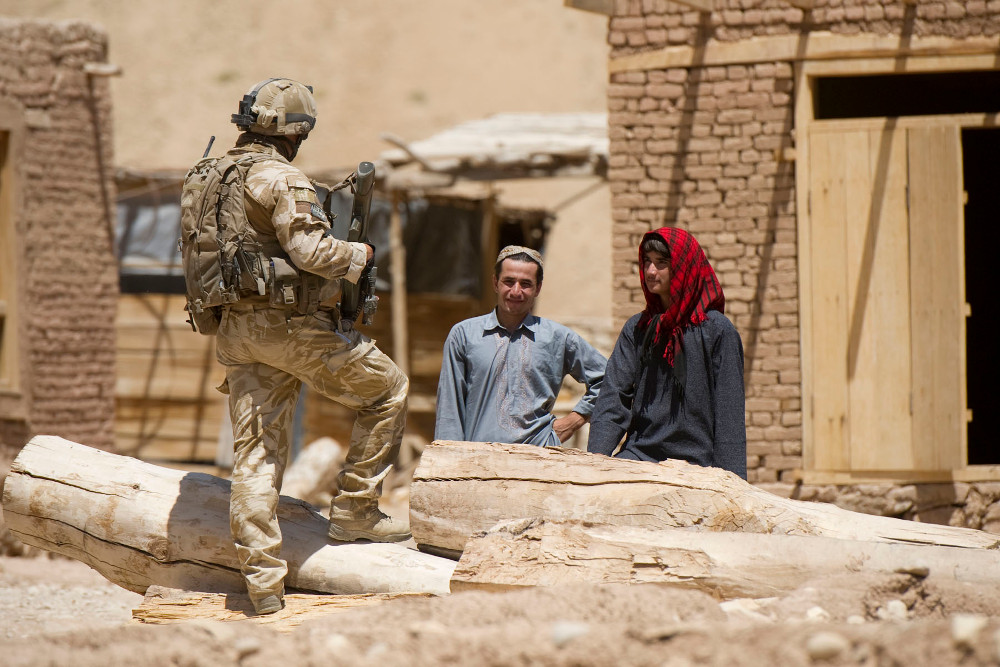Flip on the news to any international news channel and within an hour probably less, you’ll hear a report of an attack usually numbering the dead and categorizing them into different labels. Militants, combatants, suicide bombers, insurgents, civilians, etc.: each a label to identify their role within the conflict. Often times, so secured are we in our own comfort, that we neglect to think about what those titles may actually mean. In the international community however, who you are, what you are, often describes not only your role, but the rights availed to you as that particular character.
In this case the aim is to identify and define who is a civilian. According to the Geneva Convention, “any person not belonging to the armed forces is a civilian.” I wonder about the authors of the convention and why they decided that this was the best definition they could engineer. Possibly it was the aftermath of the war that they had just witnessed in which the players were identified military forces and the general public. But even then there were other players who were neither military forces nor innocent bystanders. Did the authors then see those in the grey area as civilians as well or did they feel the need to err on the side of caution and include as many under the blanket of civilians in order to protect human rights?

Perhaps their aim was not necessarily to be overly specific in identifying a civilian because they understood the many forms that conflict takes. Rather they chose to give a broad enough definition that serves to intentionally distinguish the treatment and rights of those who are armed forces and those who are not, which political scientist Helen M. Kinsella describes as the principle of distinction. The importance of the distinction is that “it requires universal observance from which no derogation is permitted. The principle is expressed in both customary and codified international humanitarian law and, as such, is both a positive and necessary precept for establishing the protection of civilians. Moreover it is a central category of contemporary human rights and humanitarian discourses. The principle prescribes respect for and protection of civilians in times of armed conflict and ‘forms the basis of the entire regulation of war’”.
The way war is conducted or rather the way war is supposed to be conducted is stated in Geneva conventions. Throughout the convention there are laws that are supposed to be the guidelines to help protect civilians. When I think of this idea of protection, I immediately think of innocent children who should be protected from the atrocities of war and armed conflict. However, in this sense it isn’t just children nor are all children innocent. However this is where I begin to derive my idea of what a civilian is. The idea behind labeling civilians is a way of declaring a certain population’s innocence in a time usually filled with turmoil. However how is this innocence defined? And just as there are different levels of involvement, are there not different levels of innocence? And if so, at what point has a civilian gotten so involved in a conflict that they compromise the qualified level of innocence that gives them the status of civilian? But also take in the idea of coercion. If a civilian succumbs to the force of an opposition do they then forfeit their innocence and become combatant instead of civilian?
For example, look at the case of Harper High, a high school located in Chicago that is plagued by gang violence. Although not necessarily an armed conflict, the situation depicts some of these ideas of blurred innocence. There are students who, merely by living in a particular section of the town, are now associated with the gang operating in that block. Some of these students may have arms to protect themselves in the event that a gang member of their block requires them to surrender their arms in the name of the group and they comply, often leading to the death of a student. Are they then still innocent enough to be considered civilian? Personally I believe they should be. But from what we’ve seen from a slightly aggressive Chicago Police Department, they disagree with this level of innocence and if the crime were to be investigated and they found the supplier of the weaponry, they may be charged with a crime.
So the question still remains: who is a civilian? To partly answer this I look at the Geneva Convention’s definition of a civilian object. According to Geneva, “Civilian objects are all objects which are not military objects, i.e. which do not make an effective contribution to military action and whose destruction, capture or neutralization would not, in the circumstances prevailing at the time, offer a definite military advantage.”
The part that really sticks out to me and again makes me wonder why the authors of the convention could not add to the definition of a civilian being, is their emphasis on the fact that a civilian object cannot make an effective contribution to military action. So can the same idea be applied to a civilian being? Then I guess one must have to measure what an “effective” contribution would be. Intel? Weaponry? Resources? And again this makes the definition one that is overly malleable to the subjectiveness of the people who are distinguishing between civilian and combatant.
If nations are to uphold human rights laws, it is imperative that there be a clearer distinction of who is a civilian and who is not because often times, it is when those lines get blurred that rights are infringed upon.


